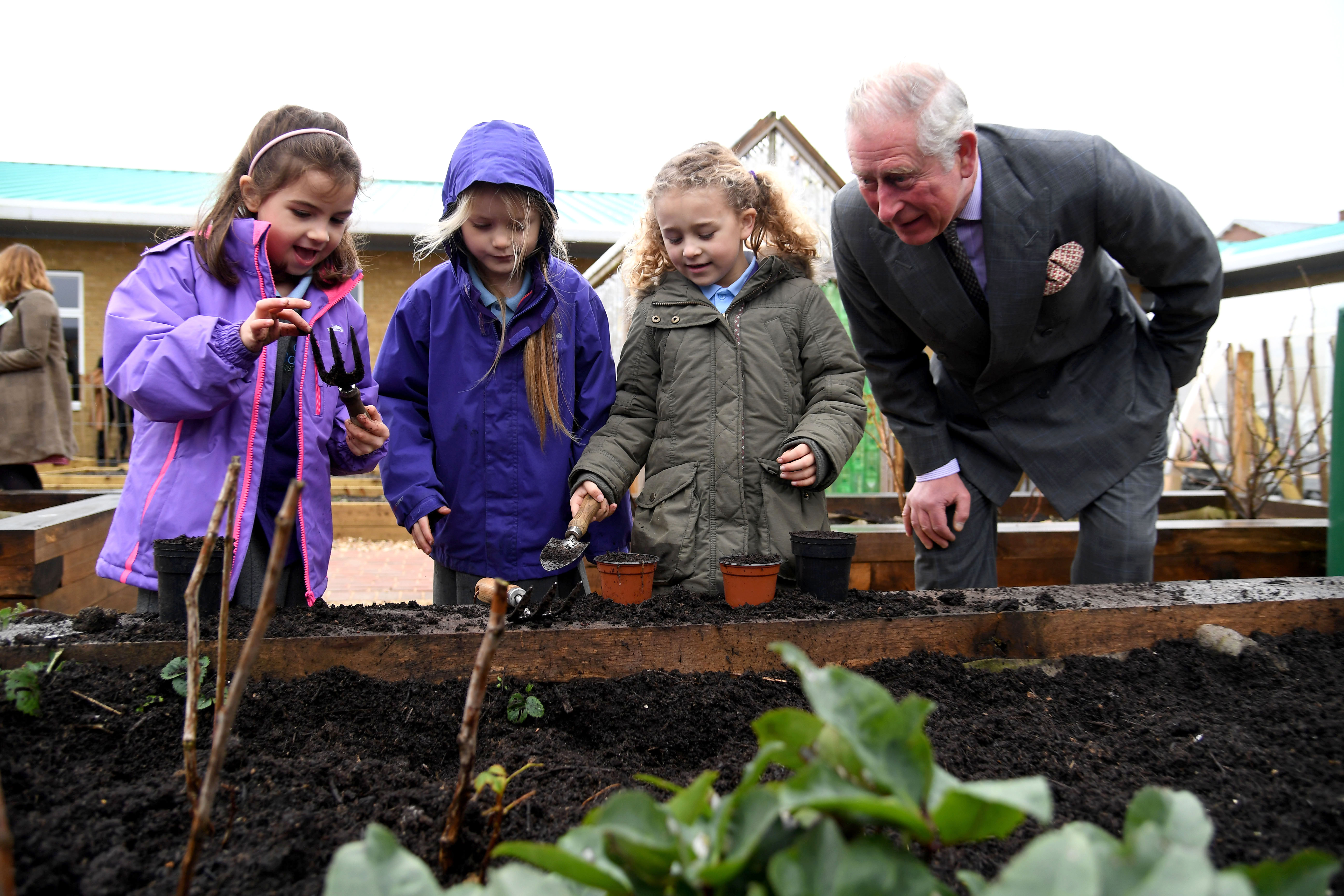While some CEOs stand accused of financing the burning of the Amazon Rain Forests, and other Presidents strip back environmental protections of our planet, there is one leader who has been advocating for more than four decades for greater Harmony between mankind and the planet that nurtures and sustains us . He’s The Prince of Wales and Heir Apparent to Her Majesty The Queen. Those who work closely with him affectionately refer to him as “The Boss.” He is also Nature’s Prince and the author of the book Harmony, placing sustainability at the heart of all he does.
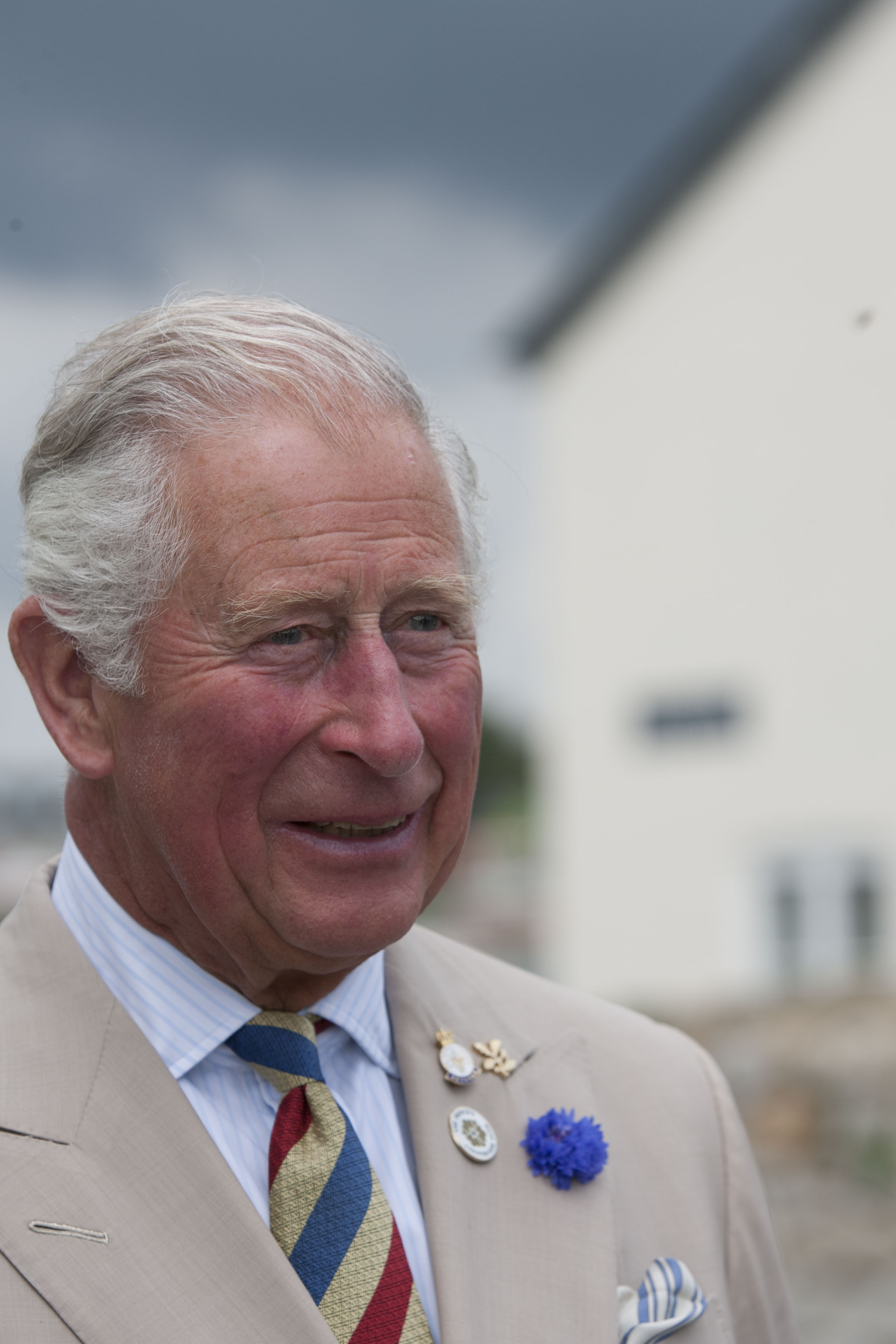
The Prince of Wales leads by example. His Home Farm is organic and has been since 1985. (You can have champagne tea and visit the Highgrove Gardens.) He drives an electric car. The Duke of Cambridge (Prince William) founded Active for Wildlife, bringing together a collaboration of conservation organizations to protect natural resources, promote environmental education and stop illegal trafficking of ivory products. The Duke of Sussex (Prince Harry) is the President of African Parks, a nonprofit conservation organization in Malawi. He also advocated for recycling during his military days. Reaching beyond his immediate family, The Prince of Wales and the Duchy of Cornwall are creating mixed use communities that make it easier for those who live there to enjoy the body/mind/soul benefits and savings of living green.
Poundbury, Dorset
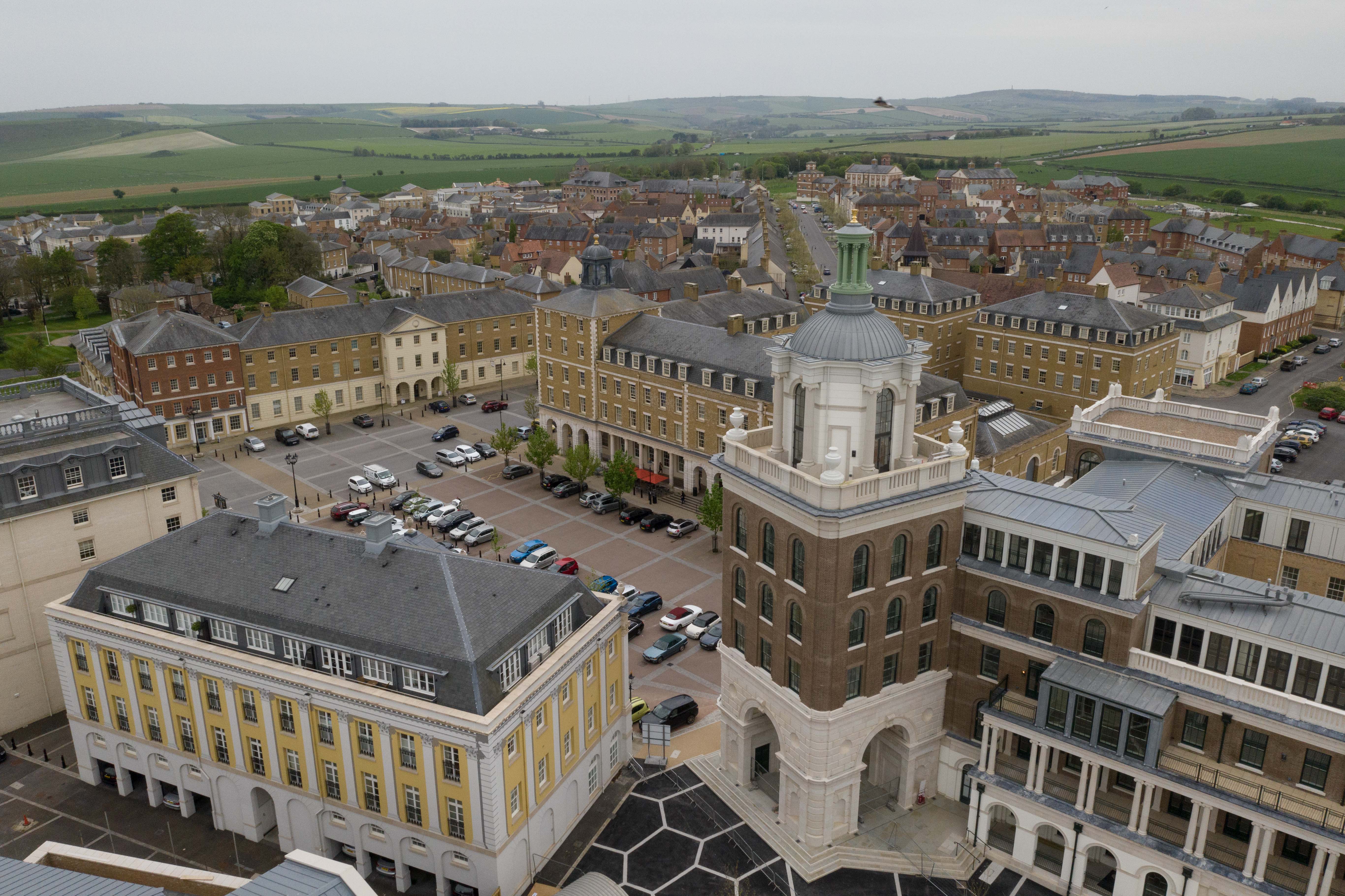
Poundbury, Dorset
In October of 1993, The Prince of Wales and famed urban designer Leon Krier set out to create a sustainable community on the outskirts of Dorchester, called Poundbury. The streets were designed to promote walking and biking, particularly for day trips to the market, employing Krier’s famous bike and pedestrian friendly traffic calming strategies. Most everything is recycled in Poundbury, including household food waste (which accounts for approximately 22% of waste in most communities, according to EPA.gov). The heat is powered by anaerobic digestion. The main food market, Waitrose, has eliminated plastic carryout bags, and carries organic food and products. The Brace of Butchers offers local meat, produce and milk for sale, which are available in bulk, i.e. not wrapped in plastic. The Potting Shed features organic fare, wines and prosecco.
While staying in Poundbury in December of this year, I had the good fortune of being hosted by a couple who commute by bicycle daily, 16-24 miles round trip. This happens even in winter. Sometimes if the weather forecast calls for rain on the ride home, they’ll opt for driving. However, biking is “play” and driving is a bit of a grudge for them. According to Li Watkins, “You see the birds and butterflies. It’s such a different world than listening to the radio, with your foot on the gas pedal.” Li and her husband Jonathan purchased a 2nd home in Poundbury (their 1st home is in Bridport), partially to be able to do a bike commute, and also so that their daughter could attend the local school.

Katie and Pete Smith used to commute two hours daily to work. Poole is about 30 miles from Poundbury. However, afternoon school traffic during the return trip home can turn the route into a stop and go nightmare of an hour and a half. The couple found similar jobs in food service in Poundbury, and now walk to work. “It’s lovely. Now we leave the house and we’re here in five minutes,” Katie told me. “We used to come home so stressed.” They also save over $4,000 per year that used to be spent on gasoline. The additional savings on wear and tear to the car takes the savings even higher.
Over 50% of the children at Damers First School in Poundbury commute by bike or scooter. Under the aegis of Head Teacher Catherine Smith, and with the tireless campaigning of Damers eco warrior Edd Moore, the Damers school children have also led an award-winning no plastic campaign in Poundbury and Dorchester. They started by convincing the school authorities to deliver their fruit and produce without plastic wrapping. They then developed a Waxtastic No Plastic cling film, which they sell to the locals. The Damers Eco Club members, with Edd Moore at the helm, challenge local businesses to nix plastic wrapped food, plastic carryout bags and plastic straws. Their recycling program has helped to fund outdoor classrooms, gardens, chickens, turtles, a pond, and other hands-on learning opportunities that make school fun.

In 2019, Damers First School in Poundbury was named the Eco-School of the Year (a national achievement) and was crowned the Surfers Against Sewage (SAS) Plastic Free Schools’ Champion. Learn more about Eco-Schools, a global green curriculum for all school ages, at https://www.ecoschools.global.
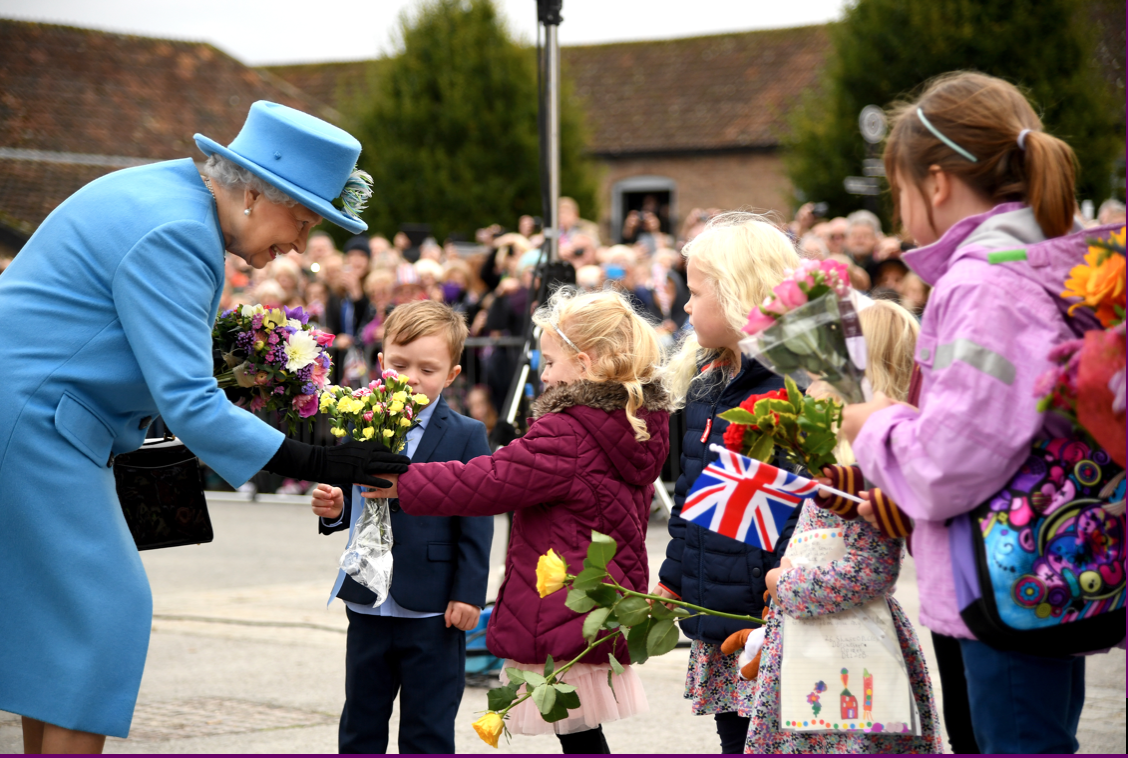
There is more to be done in the ongoing efforts to green Poundbury. There are far too many commuters zipping down city centers that were designed for mixed use. Some folks, out of habit, still drive a few blocks for groceries or to the local pub. However, as we can see with Catherine Smith, Edd Moore, Li and Jonathan Watkins, Katie and Pete Smith, Fran Leaper and many more Poundbury denizens and leaders, sustainability initiatives are now being led by the community members themselves. That has freed up the Duchy of Cornwall team to turn their efforts to a twin eco-city that some are calling Poundbury by the Shore – Nansladen, Cornwall.
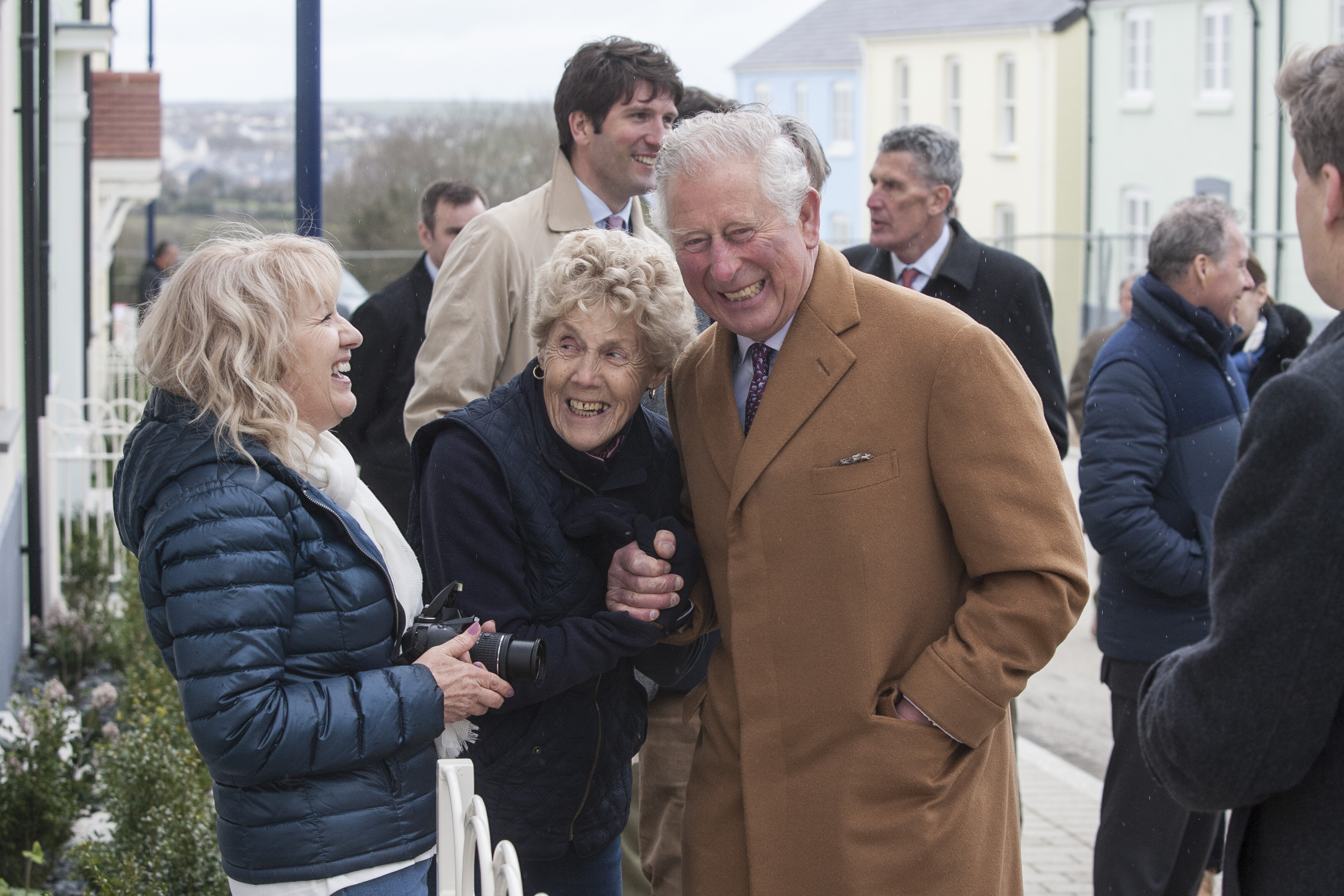
Nansladen, Cornwall (Nansladen is Cornish for broad valley)
Nansladen is in Cornwall, near the famous surfing beach town of Newquay – a popular tourist attraction. The area is more affordable than Poundbury (at least for now), with a seaside pastel aesthetic and Cornish culture at the heart of the community. The street names are in Cornish. (Try pronouncing Chi Myghtern Lewdh Kresennik Pennfenten.) Like Poundbury, there is a focus on green space, play areas and creating a walking/biking mixed use community.
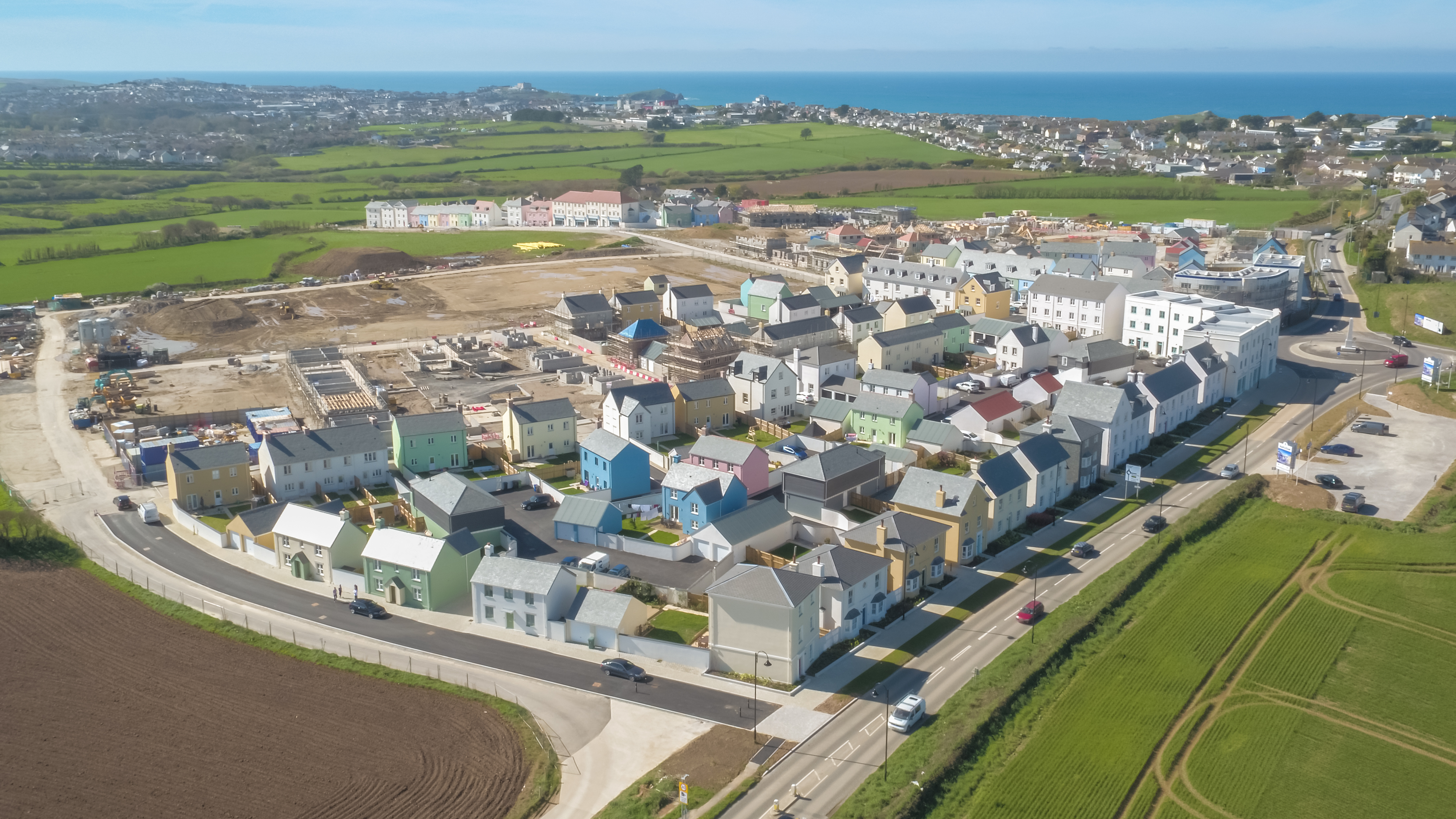
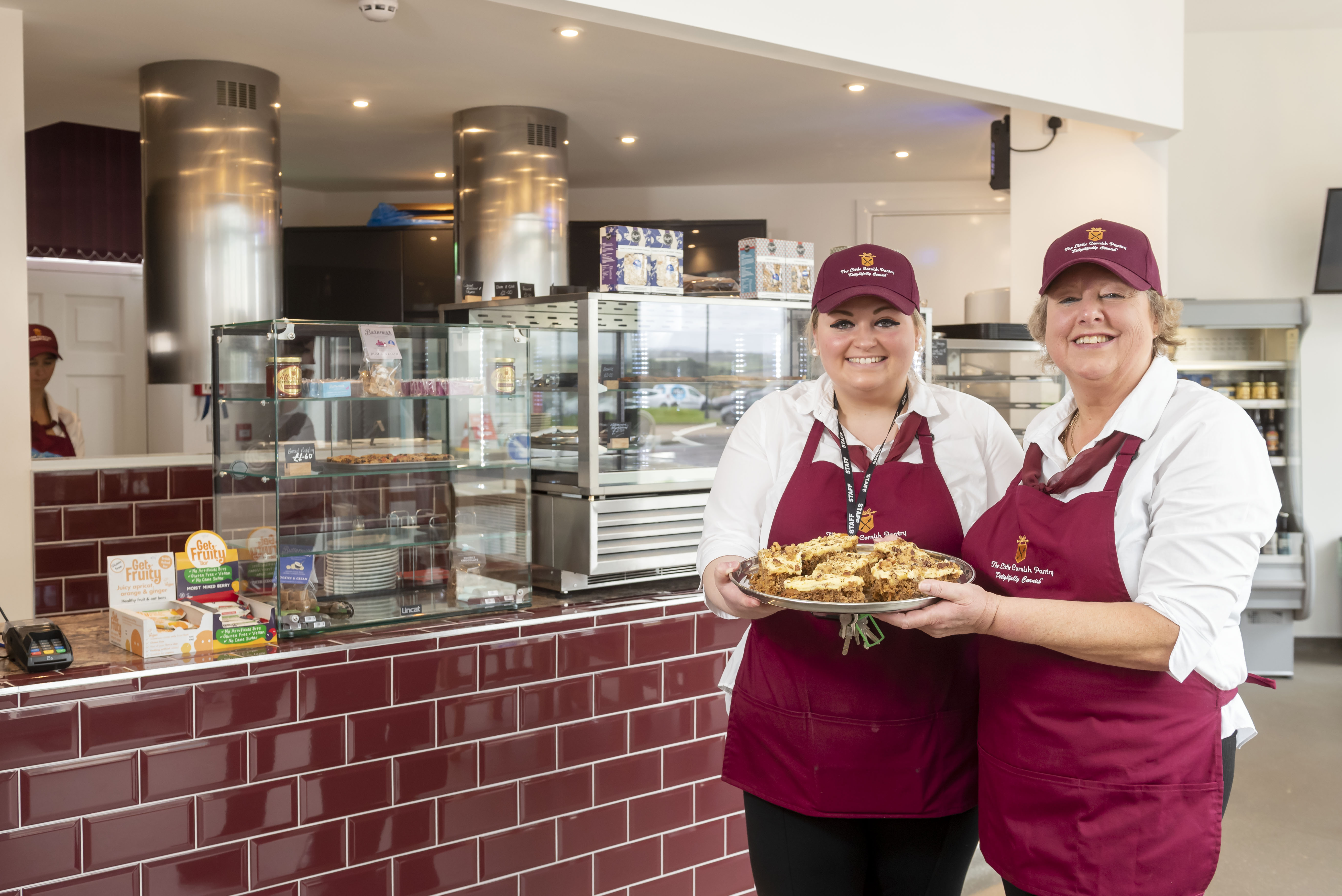
Nansladen’s construction materials and labor are sourced locally. At least 10% of the new homes will feature “in roof” solar power, and this number is set to grow alongside the electric vehicle chargers being installed in some of the public squares and residential garages, according to project manager Peter James. There is also great attention paid to insulation, which reduces energy use dramatically, no matter where it is sourced from. According to Peter, it’s important to “reduce the need for heat and electric. Don’t just waste it because it’s green.”
30% of the housing in Nansladen will be affordable. As in Poundbury, Nansladen uses a “pepper pot” approach to integrating affordable housing, rather than creating lower-income ghettos. Yes, the marquee homes will be bigger. However, as you walk down the street, you’d be hard-pressed to identify which apartments were “affordable” and which are where the posh, grand home fires burn.
Nansladen is still in the early stages. However, the community has already begun attracting Londoners who can telecommute to work, thanks to fiber, and prefer a rural setting for raising their family. Home sales are prebooked through June of 2020.
I drove into Nansladen under a full rainbow and magically, a few days later as I drove away back toward Poundbury, that same full rainbow arched for me again. Just as the first Poundbury residents enjoy the capital pleasures of being early adopters (some have seen the value of their home double), will the early Nansladen denizens have fate shine on their vision? One thing is for sure. When you create a sustainable community, people who are interested in living in greater harmony with nature will want to come. And when you make it easy and affordable for them to come, they queue up.


